Sustainable Development, Corporate Social Responsibility, and Ethics Action Plan
Uniting our actions, partnerships, collaborations, and resources under one unifying ecosystem
Around the world, academic institutions are on the path toward sustainable development and are incorporating the concept of continuous improvement in sustainability into all university activities.
In 2020, HEC Montréal released its 2020-2023 strategic plan and its new mission: Building on our excellence in teaching and research, HEC Montréal is a French-language institution that is open to the world and solidly rooted in Quebec society, that trains management leaders who make a responsible contribution to the success of organizations and to the sustainable development of society at large.
In response to this priority and these objectives, the school created a strategic initiative to "establish itself as a major hub for research, transfer, and academics in sustainable development and business ethics." Further to its consultations with stakeholders and a thorough analysis of the school's needs, the school developed an action plan for sustainable development, corporate social responsibility, and ethics.
Components of the action plan
The action plan:
- provides a simple, concrete, and ambitious definition of HEC Montréal's process
- defines the outcomes that will enable the school to achieve its strategic plan and embody its new mission
- provides a means of monitoring and verifying the outcomes.
It is intended for the entire HEC Montréal community and provides a framework for responding to the issues and needs identified in consultations.
The action plan includes the following:
- A consultation report and needs analysis
- This action plan overview
- A detailed action plan
- A theory of change presented in a logic model showing the chain of outcomes to achieve our vision
- A tracking matrix of the four streams, 11 objectives, 25 actions, 50 deliverables, and 80 operational indicators
- Indicator tables on sustainable development, corporate social responsibility, and ethics, making up the accountability report
Four operational streams to drive our actions
The action plan is a means of transformation and is based on results. For this reason, the school has established four streams that will bring about transformation in all its activities. These four streams will create the conditions to enable the school to fulfil its mission and reach its goal: to ensure that our alumni contribute to the socio-ecological transition within organizations by drawing on their experience at HEC Montréal. HEC Montréal will become an influential player in SD-CSR-Ethics by embedding SD-CSR-ethics into the professional practices of its alumni, regardless of their study program or field of activity.
Our four streams

our governance

actions

our projects

knowledge
- Each stream comes with its own set of objectives, actions, deliverables, and indicators – all provided in the tracking matrix.
- These streams combined are the body of the action plan.
- The main purpose of the tracking matrix is to ensure consistency between the tasks to complete under the action plan. It is also a sort of road map to guide those working on the action plan.
Strategic outcomes
The strategic outcomes are divided into three groups.
Short-term outcomes – The school we are
Aim:
Strengthen support for SD-CSR-Ethics initiatives and collaboration within our ecosystem.
Desired outcome:
Recognize and grow the research and transfer ecosystem in the area of SD-CSR-Ethics to contribute to the school’s reach.
.
Aim:
Raise awareness within the HEC Montréal community about the importance of SD, CSR and ethics.
Desired outcome:
Ensure that our entire student body, staff, and faculty have access to SD-CSR-ethics development tools and programs.
.
Medium-term outcomes – The school we are becoming
Aim:
Increase internal expertise in SD-CSR-Ethics.
Desired outcome:
Make sure that our teaching, research, and transfer activities pertaining to SD-CSR-Ethics influence our student body, academia, and society as a whole.
.
Aim:
Incorporate SD-CSR-Ethics into the core of HEC Montréal activities.
Desired outcome:
Ensure that our activities meet the highest recognized standards and set the example for responsible practices.
.
Aim:
Support the student body in taking action, through a pathway that integrates SD-CSR-ethics learning objectives in all programs, courses, and in all academic and extracurricular activities.
Desired outcome:
Ensure that students gain the knowledge and skills in SD-CSR-ethics needed for their professional development.
.
Long-term results – The school we want to become
Aim:
Mobilize and equip HEC Montréal alumni so that they contribute to the socio-ecological transition within organizations.
Desired outcome:
Ensure that, through its actions, role and influence, HEC Montréal embodies its mission: to train management leaders who make a responsible contribution to the success of organizations and to sustainable social development. Accordingly, HEC Montréal’s alumni adopt ethical behaviours in their professional practice and contribute to the socio-ecological transition within organizations.
.
Verification and accountability
The means of verification used are the certification, accreditation, and recognition programs that relate to the school's mission. These programs provide assessment tools that gauge our performance level and show us how we measure up to our peers. They also allow us to communicate with our peers.
The major programs are:
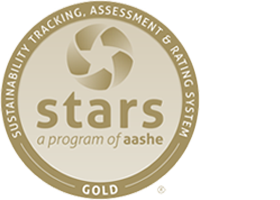
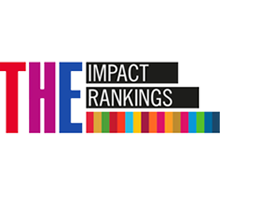
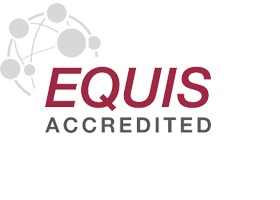
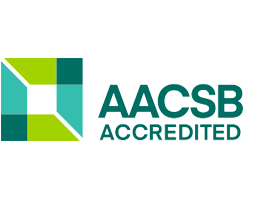
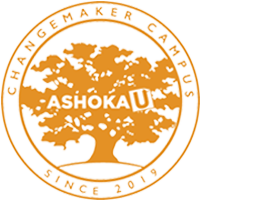
The accountability tools consist of several indicator tables through which we can monitor the school's progress toward the various desired outcomes in the action plan. These indicator tables, which will be launched as the action plan is implemented, will be shared with the HEC Montréal community and published on an annual basis in a summary report that will be made public.
Accreditations


.
To contact the Sustainable Transition Office
Sustainable Transition Office
Côte-Sainte-Catherine building
3000, chemin de la Côte-Sainte-Catherine
Office 3.870 (see floor plan)
Montréal (Quebec) Canada
H3T 2A7
